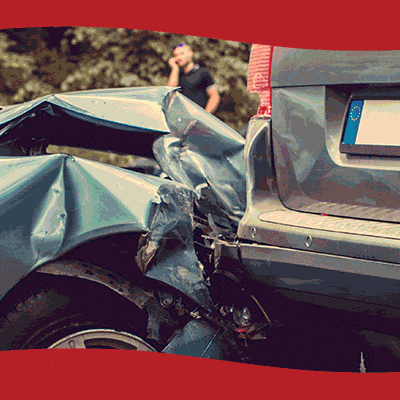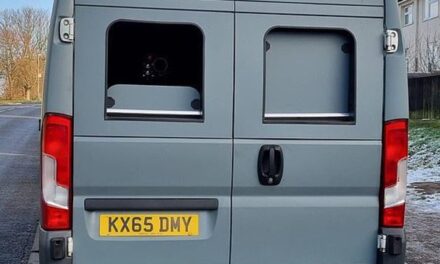If you’re asking, “What is defensive driving?” then you need our Top 5 Defensive Driving Tips for Taxi Drivers! As specialist providers of taxi insurance for over 40 years, Acorn understands the challenges taxi drivers face.
When your vehicle is your livelihood, you don’t need unnecessary risks or unexpected repairs. With almost 346 traffic accidents in Great Britain each day, it is important to be aware of the potential hazards and key considerations for UK taxi drivers. We hope our crash course in defensive driving allows taxi drivers to remain accident-free, providing added safety and awareness.
What is Defensive Driving?
Defensive driving is a practice whereby drivers anticipate potential risks and hazards ahead of time. It is sometimes known as planned driving. It affords added protection for both driver and passengers and can be altered depending on circumstances accordingly. Being able to react to road conditions, adverse weather and other road users effectively feature centrally in practicing defensive driving.
Our Top 5 Defensive Driving Tips
Try to make defensive driving part of your everyday safety procedure. Keeping these tips in mind behind the wheel can potentially increase driver safety, confidence, and earnings if followed correctly. Our Top 5 Defensive Driving Tips for Taxi Drivers include:
Advertisement
5. Safety no matter the weather
During inclement weather conditions, various aspects of driving may be affected. Visibility is reduced, stopping distances are increased, and braking is severely impaired. Try not to drive in snow and ice but if unavoidable completely clear your windows and mirrors before driving. Double your reaction time (typically from two to four seconds) in bad weather allowing for any emergency ahead of time. Sensibly decrease speed to reduce the risk of aquaplaning and skidding in bad weather.
4. There may be trouble ahead
Hazards can present themselves from any distance. Though not immediately obvious there may be factors to consider multiple cars ahead. Observe the road several vehicles away and analyse the behaviour of other drivers. Risks range from spilt loads to potholes, bad weather to broken down vehicles, and can impact the safety of unwary road users.
3. Who’s the safest of them all?
Position wing mirrors correctly to avoid generating potentially harmful blind spots. Check your mirrors frequently to elevate your awareness of other road users and potential hazards. Keep in mind that Police, fire, and ambulance services can exceed speed limits during their emergency response duties. Correct mirror usage also ensures greater awareness of your vehicle’s location in relation to other drivers.
2. Keep your distance!
Regardless of your experience, it is impossible to gauge the level of skill of another road user. By keeping to a minimum safe distance from other vehicles, you increase the chances of a safe journey. This includes vehicles in front, behind, and to the side of you. Familiarize yourself with your vehicle’s blind spots too, to avoid any unnecessary surprises.
1. Reduce speed not safety
Speeding is recorded by police as contributing towards a third of all fatal crashes. Speeding kills or injures 54 people every week in the UK. Drive within the speed limit and appropriately for the current road conditions. Adverse weather can also factor into your optimum speed to ensure safety. Remember, reduced speed increases safety for you, your passengers and other road users.
Defensive Driving Summary:
In conclusion, safety can be increased if you make defensive driving part of your everyday routine. At all times you should endeavour to drive:
- Responsibly with respect and consideration for other drivers
- At a suitable speed for the conditions of the road and the weather conditions
- In the correct location on the road and always maintain situational awareness
In addition, you can also further your Defensive Driving knowledge with a course from the Royal Society for the Prevention of Accidents (RoSPA). The RoSPA is a British charity that aims to save lives and prevent life-changing injuries which occur because of accidents.
On defence? Request a quote today!
With over 40 years of experience helping taxi drivers across the UK, Acorn has insurance policies tailored to the individual. Our team of dedicated agents are on hand to help find a policy that suits your requirements. We take the time to understand every customer’s unique circumstances, allowing us to provide a premium level of service.
Advertisement
Additionally, our Taxi App puts you in the driver’s seat, with convenience and efficiency built in as standard. You can manage your taxi policy on the go, allowing you to:
- Change badge type/operating area
- Review your policy documents
- Update driver/vehicle details
- Renew short-term policies
- Update cover level
- Make a claim
Acorn has taxi drivers covered
We start with the basic level of cover and allow you to build up your policy from there. This means you only pay for the cover you need and will not waste money on unnecessary extras. We are proud to offer:
- 40 years of experience in the industry
- UK-based taxi insurers
- Excellent verified customer rating
- Unlimited mileage options
- 24/7 UK accident & claims helpline
- Comprehensive; Third Party, Fire & Theft; or Third Party Only
- Glass windscreen cover
- Public liability insurance as standard on annual policies
- Cover available, even if you have got points on your licence
Click here today for a taxi insurance quote to suit your needs and see how much you could save!
This article includes links to third-party websites and apps which we include solely for information purposes, there is no implied endorsement of using these resources. Clicking on links, visiting third-party websites, or downloading apps may allow third parties to collect or share data about you that is out of our control. When you leave our website, we encourage you to read the privacy notice of every website you visit. We are not responsible for the availability, content, accuracy, completeness, or security of such resources. We will not be liable for direct or indirect damages arising out of or in connection with the use of websites or apps.
















